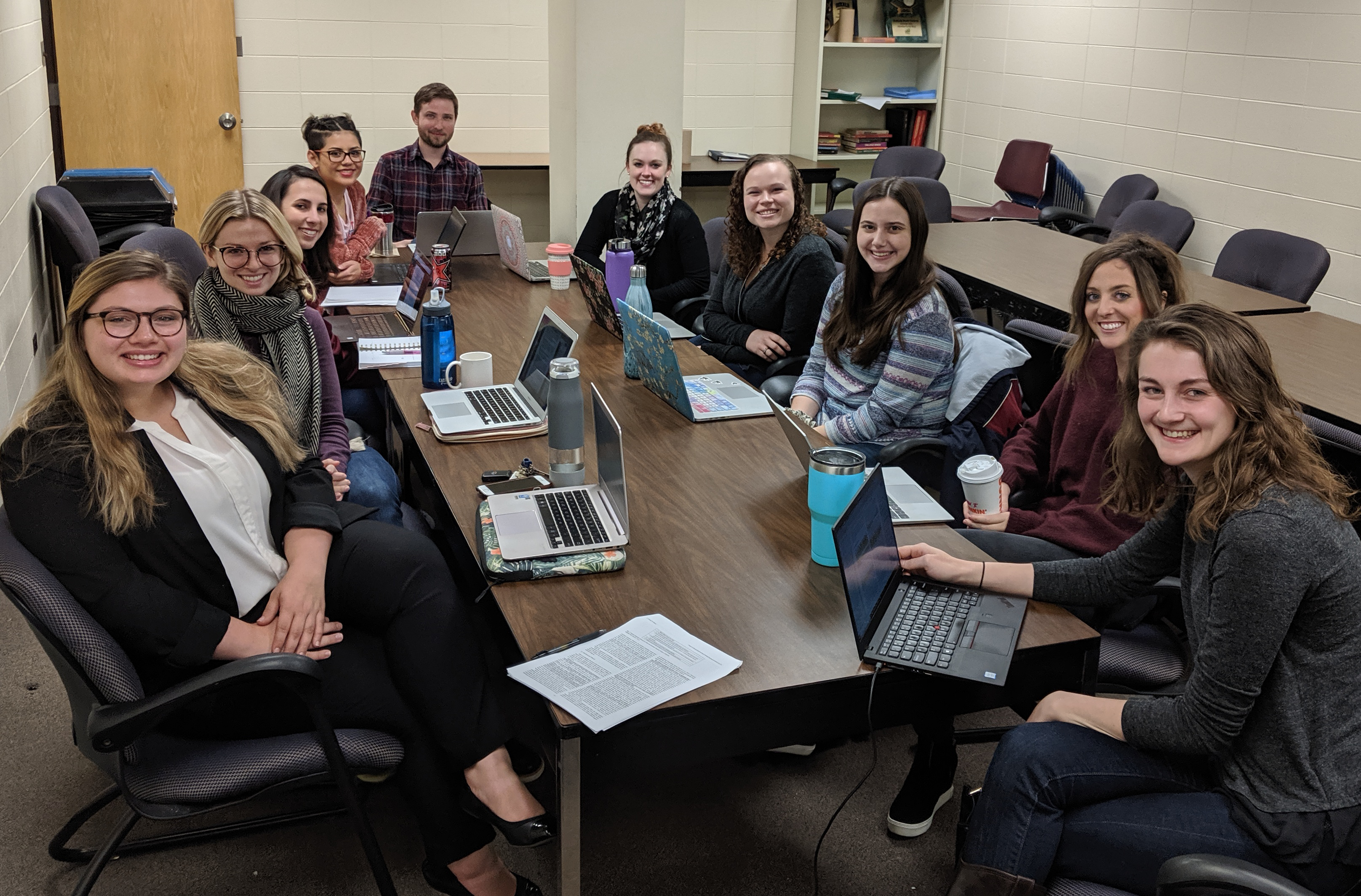- Home
- Academics
- Graduate Programs
- Clinical Psychology
- Trauma Psychology Focus
Trauma Psychology Focus
Trauma psychology is geared for students with strong research and clinical interests in the area of trauma.
This focus area is based on the premise that trauma, broadly defined, is a risk factor in multiple disorders. Increased understanding of causes and consequences of traumatic stress and related sequelae will enhance the development of intervention strategies to reduce negative effects of trauma exposure. Consistent with the New Haven trauma competencies, training will target the core competencies of scientific knowledge about trauma, trauma-relevant psychosocial assessment, trauma-relevant psychosocial intervention and trauma-informed professionalism. You will receive exposure and training in best practices in assessment and evidence-based treatment modalities in trauma psychology. You will also produce original scholarship in trauma psychology.

Trauma Journal Club
Research
You will have opportunities to conduct research under the supervision of clinical or affiliated faculty. Faculty research interests include emotional processing, emotion regulation, interpersonal violence, emergency responders, risk and protective factors following trauma exposure, trauma disclosure, and posttraumatic stress.
To apply indication your interest in the trauma psychology focus on your application materials. If you have any questions about the program, please contact Holly Orcutt, Ph.D. at horcutt@niu.edu for additional information.
Faculty and Associates
Trauma Psychology faculty and affiliates include:
| Faculty/Affiliate | Focus | |
| Julie Crouch | jcrouch@niu.edu | CSFVSA |
| Michelle Lilly | mlilly1@niu.edu | Clinical |
| Holly Orcutt | horcutt@niu.edu | Clinical |
| David Valentiner | dvalentiner@niu.edu | Clinical |
Requirements
You must complete the same requirements as outlined for all clinical students with the following differences:
- Take the graduate level trauma seminar that will cover history and theories of trauma research and intervention.
- Take the graduate level trauma seminar that will cover evidence-based assessment and treatment methods in trauma psychology.
- Attend Trauma Journal Club and other relevant brown bag presentations (Anxiety Research Topics [ART], CSFVSA).
- See trauma assessment and intervention cases in the PSC as part of the Trauma Services Clinic at least one semester during your tenure in the program.
Contact Us
Department of Psychology
Psychology-Computer Science Building room 400
815-753-0372
Director of Graduate Studies
Kevin Wu, Ph.D
kevinwu@niu.edu
Graduate Studies Assistant
kwest1@niu.edu
Admission Questions
clinicalpsychologyadmissions@niu.edu